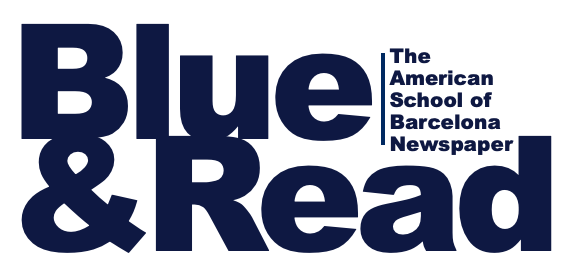Should an individual be allowed to stay in office after being convicted on multiple corruption charges?
“A long-delayed felony corruption case” isn’t a headline most citizens would like to see in relation to their prime minister. Even as Israel’s Benjamin Netanyahu faces a litany of bribery, fraud, and breach of trust charges he has denied all accusations, begging the question, should an individual in a democratic society be allowed to stay in office even after being accused and tried for multiple corruption charges?
In 2016 authorities pursued claims that the prime minister had a habit of performing official favors for wealthy businessmen in exchange for gifts (both material and intangible).
Mr. Netanyahu was later indicted in November 2019, a year after the Israeli police officially recommended that he be prosecuted. The corruption trial officially began in May of 2020 but was delayed several times due to COVID-19 and other issues. However, since that time, the Jerusalem District Court made its way through a list of more than 300 witnesses. The corruption trial is a combination of three separate cases; 1000, 2000, and 4000.
The prime minister’s wife, Sara Netanyahu, has also been accused of receiving gifts such as cigars, pink champagne and expensive jewelry, but is not a defendant in the trial.
Case 1000
Accused of accepting nearly 300,000 USD in presents (2007-2016) from Hollywood producer Arnon Milchan and billionaire, James Packer.
In return, plaintiffs say Netanyahu acted on behalf of Milchan in pressuring the finance ministry to double the duration of tax exemption for Israelis (like Milchan) after returning to the country from abroad. Mr. Netanyahu is also being accused of lobbying the US government to help Milchan renew his American visa and assisting on a merger with a TV channel.
Case 2000
Netanyahu allegedly discussed a quid pro quo arrangement in 2014 with Arnon Mozes (publisher of Yedioth Ahronoth-the largest paid Israeli newspaper by sales and circulation) under the deal that he would receive supportive coverage from the paper. In return, Netanyahu agreed to curb a rival newspaper; however, he is not accused of following through on that deal.
Case 4000
From 2012 to 2017 Shaul Elovitch, businessman and owner of Eurocom group, and his wife granted favors to Netanyahu in the hopes that he wouldn’t obstruct Elovitch’s business interests. Elovitch is alleged to have allowed Netanyahu and his family to shape his news website multiple times.
Benjamin Netanyahu is trying to lessen the Supreme Court’s power, essentially turning Israel into a dictatorship. For example, the prime minister does not want the Supreme Court to be able to strike laws that he and his coalition want to pass.
“Now the government is trying to gain control of the Supreme Court. If it succeeds, there will be no mechanism that limits its power. Coalition members have already proposed numerous laws and regulations that discriminate against Muslims, Christians, women, LGBTQ people, and secular people. They are only waiting to take control of the Supreme Court, and then they could unleash this dictatorial flood,”
says Yuval Noah in CBS News.
The Israeli parliament has passed a law that limits the Supreme Court’s power to overturn decisions made by government ministers, essentially completing the first step to curb the influence of the judiciary.
Why is Mr. Netanyahu doing this? Many speculate he is not only pursuing power, but also seeks the upper hand in his corruption trial. “Mr. Netanyahu has said that he will not use his authority to upend the legal process in his corruption trial. But some of his coalition partners have signaled a different plan” states the New York Times. Looking back at all his charges, one can notice a pattern: curbing the media. Mr. Netanyahu has consistently demonstrated his preoccupation with an advantageous characterization by popular news sites and papers, only showing that if the truth came out, the near future would not bode well for him. Many Israelis additionally fear that the overhaul will weaken the Supreme Court and the democratic balance of power will weaken.
Nevertheless, Mr. Netanyahu was still re-elected in November of 2022 even with all of these charges and allegations. However, in 2020, a conflict of interest arrangement was drawn up preventing the prime minister from involving himself in judicial appointments or legislation that could impact his ongoing corruption trial. Mr. Netanyahu recently announced that he is no longer bound by the conflict of interest arrangement and would play an active role in overseeing his government’s ongoing overhaul of the country’s judicial system. Attorney General Gali Baharav-Miara rebuked the prime minister and announced that he was acting in violation of the law. Although this proves the first overhaul-related standoff between Israel’s branches of government in which one branch views the actions of the other as illegitimate, it will likely not be the last.
Bibliography:
Grossman, David. “Israel Is on the Verge of Dictatorship.” The Atlantic, 22 March 2023, https://www.theatlantic.com/ideas/archive/2023/03/israel-benjamin-netanyahu-democracy-rule-of-law/673469/. Accessed 25 September 2023.
Harari, Yuval Noah. “Historian Yuval Noah Harari warns of dictatorship in Israel.” CBS News, 16 July 2023, https://www.cbsnews.com/news/historian-yuval-noah-harari-warns-of-dictatorship-in-israel/. Accessed 25 September 2023.
Hart, Benjamin, and staff editor. “Can Israeli Democracy Survive Netanyahu’s Power Grab?” New York Magazine, 13 March 2023, https://nymag.com/intelligencer/2023/03/can-israeli-democracy-survive-netanyahus-power-grab.html. Accessed 25 September 2023.
Kershner, Isabel. “Arnon Milchan Testifies in Benjamin Netanyahu’s Corruption Trial.” The New York Times, 25 June 2023, https://www.nytimes.com/2023/06/25/world/middleeast/netanyahu-milchan-corruption-trial.html?searchResultPosition=8. Accessed 25 September 2023.
Kershner, Isabel. “Israel’s Supreme Court Braces to Rule on Judicial Overhaul.” The New York Times, 10 August 2023, https://www.nytimes.com/2023/08/10/world/middleeast/israel-judicial-overhaul-supreme-court.html?searchResultPosition=1. Accessed 25 September 2023.
Kingsley, Patrick. “Netanyahu’s Corruption Charges in Israel: What to Know.” The New York Times, 26 June 2023, https://www.nytimes.com/2022/11/03/world/middleeast/netanyahu-corruption-charges-israel.html. Accessed 25 September 2023.“The Status of Netanyahu’s Conflict of Interest Arrangement Amid the Judicial Overhaul.” Israel Policy Forum, 29 March 2023, https://israelpolicyforum.org/2023/03/29/the-status-of-netanyahus-conflict-of-interest-arrangement-amid-the-judicial-overhaul/. Accessed 25 September 2023.

